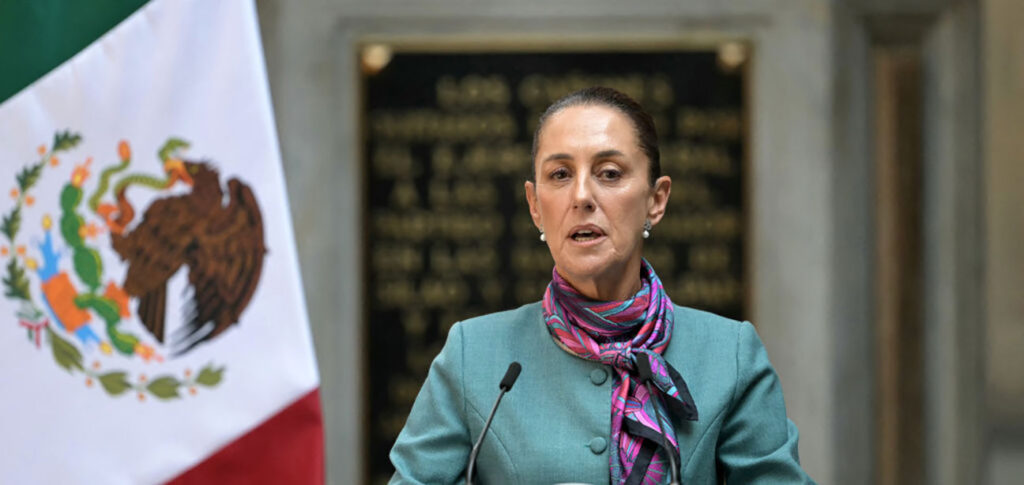Mexican President Claudia Sheinbaum’s administration said in November 2024 it will continue the policy of removing migrants from the border with the U.S. and relocate them to southern Mexico. AFP/GETTY IMAGES
THE WATCH STAFF
Mexico will continue to enforce its policy to prevent migrants from reaching its northern border, the country’s foreign minister said shortly after the U.S. presidential election. Foreign Minister Juan Ramon de la Fuente said his country’s policy of transporting migrants approaching the border to southern Mexico — implemented nearly a year ago — has yielded impressive results. “It’s working well and we’re going to continue on this path,” de la Fuente told reporters at a November 8, 2024, news conference, according to Reuters. The number of migrants apprehended at the border by U.S. authorities has dropped 76% since the December 2023 agreement between the North American neighbors. Since the beginning of 2024, Mexico has consistently impeded migrants seeking entry into the U.S., including a growing program to bus and fly non-Mexican migrants far to the south, according to Reuters.
Mexican President Claudia Sheinbaum, at the same news conference, said she had spoken to U.S. President-elect Donald Trump about the border in their first telephone call. During that call, Sheinbaum said she pointed out the drastic decrease in migrant crossings. “He raised the issue of the border … and I told him, ‘Yes, there is the issue of the border, but there will be space to talk about it,’” said Sheinbaum, describing the conversation as “very cordial,” according to Reuters. “What we are looking for is not only the containment of migration in the south, but also that there can be employment,” she said. Sheinbaum said economic development in Central America and southern Mexico is a necessary long-term solution to the migration crisis.
Since taking office in October 2024, Sheinbaum has continued to use the National Guard and other security forces to deter migrants at Mexico’s southern border. This approach aims to prevent large caravans from forming and progressing northward, Fox News reported. She has also avoided any mention of the “hugs, not bullets” strategy of her predecessor, Andres Manuel López Obrador, known as AMLO, according to The Associated Press. The Mexican Army has been involved in several violent confrontations with cartels in the first weeks of Sheinbaum’s administration, an indication that she will approach transnational criminal organizations (TCO) differently than AMLO, security analysts told the AP.
One relatively new challenge for Mexican authorities is the changing nature of migration. The increased security along the border has created a business opportunity for TCOs as they charge thousands of dollars each for migrants hoping to reach the U.S. New migration routes through Panama’s Darien Gap also have increased the logistical and financial hurdles for migrants, creating new revenue streams for the cartels, AP reported. One aspect of Sheinbaum’s policy regarding the cartels is an increased emphasis on intelligence gathering and surveillance, which will allow for more targeted raids on TCOs. A constant pressure on TCOs may deter them from shuttling migrants to the border in addition to reducing violence domestically from gang conflict.
Sheinbaum has repeatedly said that Mexico would collaborate with the incoming U.S. administration. “There is no reason to worry,” she told reporters on November 6, 2024. “There will be good relations with the United States, I am convinced of that.”

